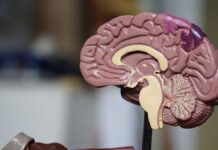Thyroid disorders can have a considerable impact on an individual’s overall health and well-being. From hyperthyroidism to hypothyroidism, these conditions can disrupt hormone balance in the body and lead to a range of symptoms. While conventional treatments like synthetic hormone replacement therapy are widely prescribed, there is growing interest in the potential benefits of bioidentical hormones in managing thyroid disorders. This article explores the role of bioidentical hormones in thyroid management, their advantages, and their potential drawbacks. If you want more information on this topic, visit websites like genemedics.com to learn more about it and continue your research.
Understanding Thyroid Disorders
To comprehend the role of bioidentical hormones in managing thyroid disorders, it’s crucial to first understand the two main types of thyroid conditions: hyperthyroidism and hypothyroidism.
Hyperthyroidism
Hyperthyroidism occurs when the thyroid gland produces an excessive amount of thyroid hormones. This can lead to symptoms like rapid heartbeat, weight loss, anxiety, and excessive sweating. Common treatments for hyperthyroidism include antithyroid medications, radioactive iodine therapy, or thyroid surgery.
Hypothyroidism
Conversely, hypothyroidism results from an underactive thyroid gland, leading to fatigue, weight gain, depression, and cold intolerance. Conventional treatment typically involves synthetic hormone replacement therapy, where patients are prescribed synthetic versions of thyroid hormones.
The Role of Bioidentical Hormones
As the name suggests, bioidentical hormones are identical in structure to the hormones naturally produced by the body. These hormones are derived from natural sources, such as soy or yam, and are often compounded by a pharmacist to meet an individual’s specific hormonal needs.
Advantages of Bioidentical Hormones
Customization: Bioidentical hormones can be tailored to each patient’s unique hormonal requirements, offering a more personalized approach to treatment.
Reduced Side Effects: Some individuals report fewer side effects with bioidentical hormones than synthetic counterparts.
Natural Compatibility: Bioidentical hormones closely resemble the body’s hormones, potentially making them a better fit for some patients.
Bioidentical Hormones and Thyroid Management
While bioidentical hormones have gained popularity in managing hormonal imbalances, their role in thyroid disorders is not as established as conventional treatments. However, some patients with thyroid issues have reported positive outcomes when using bioidentical hormones.
Bioidentical Hormones for Hypothyroidism
For individuals with hypothyroidism, bioidentical thyroid hormones (T3 and T4) can be compounded to closely match their needs. Some patients prefer bioidentical hormones due to their perceived natural compatibility, which can result in a more balanced and symptom-free life.
Bioidentical Hormones for Hyperthyroidism
In hyperthyroidism, bioidentical hormones may not be the first-line treatment, but they can still play a role in managing symptoms. By customizing hormone replacement therapy, healthcare providers can help regulate hormone levels more precisely, potentially improving patient outcomes.
Considerations and Drawbacks
Considering some potential drawbacks and factors before opting for bioidentical hormones in thyroid management is essential.
Lack of Long-Term Research:
One significant limitation is the limited long-term research on the efficacy and safety of bioidentical hormones for thyroid disorders. Conventional treatments have a longer track record and a more substantial body of evidence.
Quality Control:
The compounding of bioidentical hormones is not regulated as rigorously as pharmaceutical drugs, which can lead to variations in quality and consistency between different compounded products.
Cost:
Bioidentical hormones may be more expensive than conventional synthetic hormones, as they are often not covered by insurance. Patients should consider their budget when choosing this option.
Consultation with Healthcare Providers
Individuals considering bioidentical hormones for thyroid management should consult a healthcare provider, preferably an endocrinologist or a knowledgeable specialist. To determine the most appropriate treatment approach, a healthcare professional can assess the patient’s thyroid condition, overall health, and personal preferences.
Conclusion
In the world of managing thyroid disorders, bioidentical hormones offer a promising alternative to conventional synthetic hormone replacement therapy. Their advantages include customization, potential reduced side effects, and natural compatibility with the body’s hormones. However, weighing these benefits against the drawbacks, such as the lack of long-term research and potential cost implications, is essential.
Ultimately, the decision to use hormones in thyroid management should be made in consultation with a qualified healthcare provider who can provide expert guidance and ensure that the chosen treatment aligns with the patient’s specific needs and preferences. As bioidentical hormones evolve, further research and clinical trials will help shed more light on their efficacy in managing thyroid disorders, providing patients with more treatment options and a better quality of life.








































